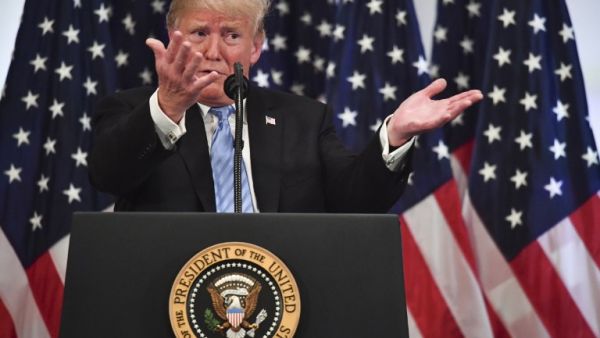U.S. President Donald trump announced Wednesday his support for a two-state solution, marking the first time that he officially endorses creating separate Israeli and Palestinian nations since his arrival to the White House.
Trump also said he has a plan for peace in the Middle East and that he would unveil it in about two to four months.
He spoke to reporters following a meeting with Israeli Prime Minister Binyamin Netanyahu on the sidelines of the United Nations General Assembly in New York.
"I like the two-state solution," the U.S. President said. "That's what I think works best. I don't even have to speak to anybody. That's my feeling."
The surprise announcement came despite Trump’s provocative decision to move the U.S. Embassy from Tel Aviv to Jerusalem earlier this year.
Since Washington has recognized Jerusalem as Israel’s capital, Palestinians have boycotted the Trump administration.
Trump said, "When they talk about tough deals, they always say Israel and the Palestinians. That's the toughest of all deals.”
The President added that it is his dream to be able to get that done prior to the end of his first term.
“I don't want to do it in my second term. We'll do other things in my second term,” he said.
When asked if he thinks Palestinian leaders will return to the bargaining table, Trump said, "Absolutely. One-hundred percent."
Separately, Trump lashed out at the Iranian regime for the second day on Wednesday following similar comments he delivered a day earlier. He called on all world leaders to respect sanctions imposed by the US on Tehran and said there will be more sanctions to punish the regime.
Trump also urged world powers to work with the US to "ensure the Iranian regime changes its behavior and never acquires a nuclear bomb.”
His comments highlighted a rift between Washington and its European allies over the Iran nuclear deal. Both, French President Emmanuel Macron and British Prime Minister Theresa May announced they still back the Nuclear Deal signed with Iran in 2015.
May said it "remains the best means of preventing Iran from developing a nuclear weapon,” while Macron said that concerns about Iran cannot be tackled with "a policy of sanctions and containment."








